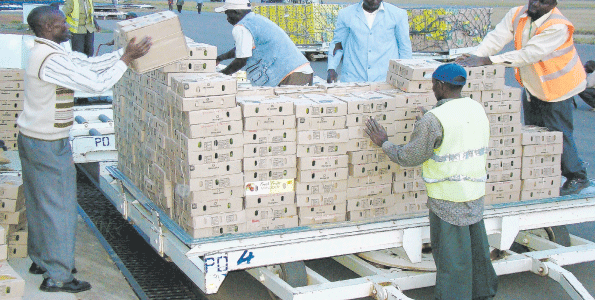Kenya walking tightrope on EPAs talks

East African | Sunday, October 23 2011
Kenya walking tightrope on EPAs talks
By SCOLA KAMAU, Special Correspondent
The outcome of the Economic Partnership Agreement (EPA) negotiations scheduled for December will determine the future of trade between the EAC bloc and European Union.
The negotiations have been on a 14-month break since the Zanzibar meeting in September.
EAC hopes to challenge the EU’s strict sanitary and phytosanitary requirements (SPS) on regional exports that have long locked commodities from the region out of the European market.
The standards are said to be higher than those of other world organisations.
The region’s technological standards can’t match these EU requirements and experts have urged the bloc to raise the issue come December.
According to Gladys Maina, Kenya Pests Control Board chief executive, SPS measures are technical, science based ; they must be justified and not beyond the risks posed, while the burden of proof should rest with the party introducing the measure.
“Negotiations should include capacity building, infrastructure, ICT and communication support for addressing SPS measures whenever introduced,” she explained.
Other areas include a binding SPS protocol and time-frames for introducing new measures to allow the EAC time to address them without interfering with trade negatively.
According to EAC officials the draft development matrix on EPAS proposes developmental support to build SPS capacities in the region in preparation for the phasing out of the preferential treatment.
“This would provide for regional centres of excellence and ensure region’s ability to compete in the global market,” explained David Nalo, Permanent Secretary to Kenya’s ministry of EAC.
In line with standards, priorities include laboratories for quality measurements, value chain support systems, refrigerated vehicles, access to clean water, and infrastructural development.
A contentious issue that EAC and EU have failed to agree on since 2007 when negotiations kicked is ‘the most favored nation’. The issue is expected to be revisited in December.
Under this clause, the European Commission insists that in the event that EAC countries open up more trade under a Free Trade Area with major trading economies (whom EC defines as countries whose share in total global trade is at least one percent), the same benefits should be passed to the EU.
EPAs experts say the article is a hindrance to economic growth because it locks EAC’s trade with other blocs even where terms are more favourable.
EU however said the forthcoming meeting is a chance to solve the outstanding issues.
“The EU views the comprehensive EPA negotiations as an opportunity to settle the outstanding matters — such as agriculture and development co-operation,” said Peter Thompson, a senior official leading the EU negotiation team.
At the EAC level, member countries are discussing certification and patenting goods as EAC and not as per country of origin for favourable terms at the EU market.
“EPAs give us a forum to say what we want to export as a bloc but when we do it individually, we have no choice, because we meet the partners as countries,” said Mr Nalo.
Even as Kenya looked forward to this opportunity, companies including airlines are worried that the bloc’s largest economy might be locked out if the December negotiations flop.
Europe this year issued a fresh warning of possible revenue losses for Kenya should the EAC fail to reach a trade deal with EU.
“If the Kenya products are taxed on entry in the EU they will be uncompetitive and result in a sharp decline in exports,” said Michael Muriithi, British Airways World Cargo Area commercial manager for East Africa.
Kenya risks taxation on its exports to Europe by virtue of economic strength if the trade talks stall as counterparts Burundi, Rwanda, Tanzania and Uganda classified as least-developed countries, will enjoy duty-free quota access to the EU markets even if the EPAs negotiations were not concluded.





